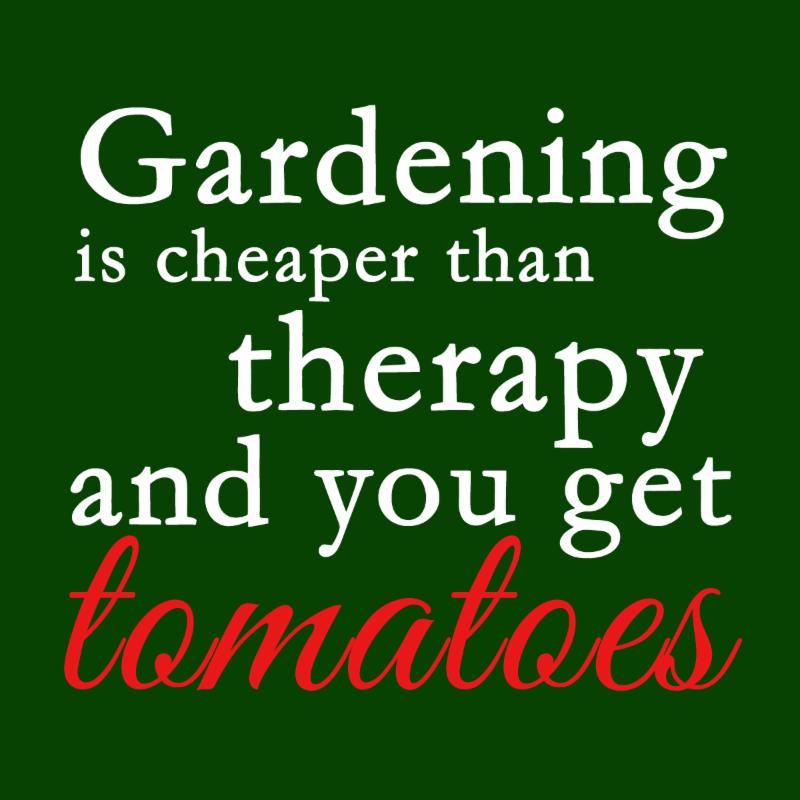
National Garden Month
April
When You Garden, You Grow!
Every April communities, organizations, and individuals nationwide celebrate gardening during National Garden Month. Gardeners know, and research confirms, that nurturing plants is good for us: attitudes toward health and nutrition improve, kids perform better at school, and community spirit grows. Join the celebration and help to make America a greener, healthier, more livable place!
National Gardening Association
|
|

Tractor Supply Clover Campaign
April 26 - May 7
Show your support for Burke County 4-H by purchasing a paper clover when you shop at our local Tractor Supply during these dates.
|
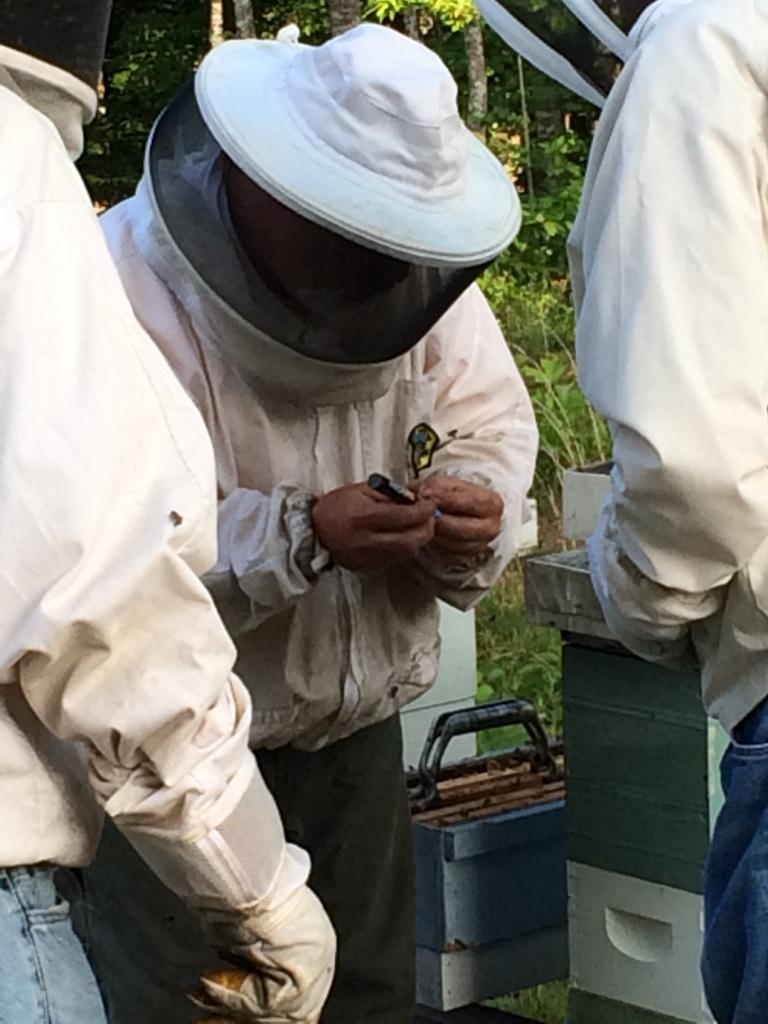
Burke County Beekeepers
April 11, 2017
6:30 pm
The Burke County Beekeepers Association (BCBA) meets monthly at the Burke County Agricultural Building located at 130 Ammons Drive in Morganton. There is a featured speaker each month and the public is invited to attend. The BCBA is a chapter of the North Carolina State Beekeepers Association.
|
Animal Welfare Initiative: Adopt, Spay & Neuter
Click on the link below to check out how the Burke County Manager is sharing information about this initiative.
|
|
| Animal Welfare Initiative: Adopt, Spay & Neuter |
|
Burke County 4-H Spring Scrapbook Crop
Saturday, April 22, 2017
8:00 am - 6:00 pm
Burke County Agricultural Building
$35 includes all day cropping, your own table space, door prizes and access to Cricut and Sizzix.
Register by April 17, 2017
The fee includes continental breakfast, lunch and snacks. There will be a page and card contest for items made that day. 4-H'ers will be on hand to assist with loading and unloading. Proceeds from this fundraiser are used to support county and club activities such as the Achievement Night program, meals and awards.
Registration forms are available at our office or from our website.
|

Cookbooks are here!
Recipes, tips & tricks, cuts of meat and more are included in the cookbook.
$15 each
|

Safe Plates Course
April 26 & 27, 2017 from 9 am - 4 pm
Exam April 28 starting at 9 am
Certified Food Protection Manager Course
North Carolina Cooperative Extension offers Safe Plates for all those who work in the food service industry. The course helps food establishments meet the requirement of having at least one supervisor certified as a food protection manager, a mandate of the FDA Food Code.
Contact Emily Troutman for more information.
|
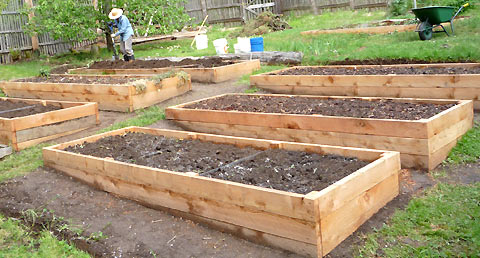
Successful Gardener Workshop
April 6, 2017
Building Raised Beds
5:30 - 7:30 pm
Burke County Agricultural Building
Call our office at 828-764-9480 for more information or to register for this FREE workshop.
|
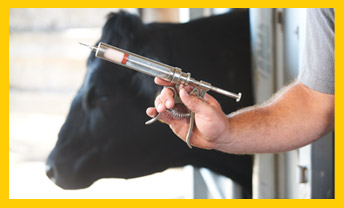
Beef Cattle Vaccinations
A herd health program is a vital component of a profitable beef cattle operation. With breeding season approaching, a spring vaccination regime can help prevent potential disease threats in our herds. Pre-breeding, producers should mainly be concerned with reducing pregnancy losses. Open cows and abortions are devastating to the profit margin of a beef operation, and guarding against the diseases responsible is always a good idea.
Disease challenges vary from farm to farm, however a basic vaccination program targeting IBR, BVD, PI3, BRSV, Lepto and Vibriosis should be given prior to the breeding season. By vaccinating, you are merely giving the animal a shot, and that by itself, does not confer immunity. Vaccines can fail to immunize for a variety of reasons, but human error is the major cause. Always read the label, and administer the vaccine accordingly. Most killed vaccines, or vaccines made from killed bacteria, will require a booster dose, given 2-4 weeks after the initial dose. Failure to give the booster dose, will result in little or even impaired immunity. Mishandling of vaccine can also cause failure. Never allow vaccines to get too hot at the chute, or in transport, sit in direct sunlight, or freeze in the refrigerator. Always store as directed on the label. Producers always say, vaccinating my cows isn't worth the cost, but avoiding a disease outbreak among your breeding stock will easily cover the cost. It is always less expensive to prevent disease, than to cure it!
|

2017 Census of Agriculture
America's farmers and ranchers will soon have the opportunity to strongly represent agriculture in their communities and industry by taking part in the 2017 Census of Agriculture. Conducted every five years by the U.S. Department of Agriculture's (USDA) National Agricultural Statistics Service (NASS), the census, to be mailed at the end of this year, is a complete count of all U.S. farms, ranches, and those who operate them. The Census of Agriculture highlights land use and ownership, operator characteristics, production practices, income and expenditures, and other topics.
Producers who are new to farming or did not receive a Census of Agriculture in 2012 still have time to sign up to receive the 2017 Census of Agriculture report form by visiting
www.agcensus.usda.gov
and clicking on the 'Make Sure You Are Counted' button through June.
For more information about the 2017 Census of Agriculture and to see how census data are used, visit
www.agcensus.usda.gov
or call Spring Williams-Byrd, County Extension Director at 828-764-9480.
|
Farmer's Market Food Safety Workshops
April 13, 2017
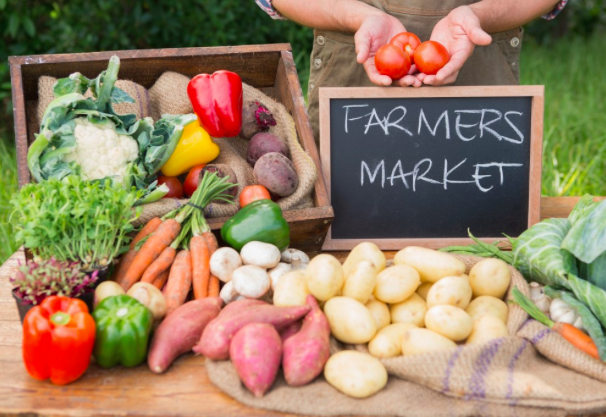
5:30 - 7:00 pm
April 25, 2017
9:00 - 10:30 am
If you are planning on selling at a market this season, join us for a FREE workshop to learn food safety risks associated with selling
fresh produce and canned goods, and steps you can take to
protect your business and customers. Registration not required.
Contact Emily Troutman, FCS Agent for more information.
[email protected] or 828-764-9480
|
Not All Soil Tests are Equal
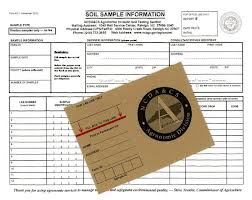
With the coming of spring, all gardeners want to make a fresh start. They want to do everything they can to insure that their lawns, gardens and landscapes grow and produce to the max. A soil test can help make that happen but not all soil tests are accurate.
A soil test measures fertility and pH of the soil. In North Carolina our soils are usually acidic which means that they test below 7.0 - here in Burke County around 5.5 to 6.5. When pH is out of kilter, nutrients that are present in the soil or those that are added to the soil with the fertilizers we apply may bind with soil particles and not be able to be taken up by plants. This is why pH is so important.
The soil test that is available from the North Carolina Cooperative Extension is the only sure way to test soil fertility and pH here in Burke County. The test is taken by the homeowner and mailed in to a testing lab at the North Carolina Department of Agriculture in Raleigh. From the soil sample, the lab can accurately tell the homeowner how much lime he needs to put in his soil to get it in the range for the crop he is trying to grow. Test kits that are available in stores are not accurate and the Extension agent cannot take one of these random pH readings and tell the homeowner what to do to correct his soil. There are many facets to this determination such as type of soil and crop to be grown and previous crop grown.
Yes, the NCDA soil test takes from 3 to 6 weeks so it is not an instant answer but it is an accurate answer to soil fertility and pH. With the high prices of lime and fertilizer, no one can afford to waste money on applying materials that are not necessary. Test kits are available at the Extension Office at 130 Ammons Drive in Morganton. Testing is free from April 1 through November 30, and the homeowner only has to pay postage. Take the time to test your soil the right way.
|
4-H Updates 
Tuesday, April 4 -
Burke County 4-H County Council Meeting at 6:00 pm at the Burke County Agricultural Building. Please join us for a county wide leadership discussion and activity on the upcoming 4-H County Activity Day presentations and county wide fundraisers. Anyone can attend this meeting.
April 29 & 30 - The West District 4-H Horse Show will be held at the WNC Agricultural Center in Fletcher, NC. The Show will begin at 8:30am on Saturday and conclude on Sunday around 11am. Participants will participate and compete in numerous categories and activities.
|
Canner Gauge Testing 
If your canner has a pressure gauge, it should be tested for accuracy to ensure safe food processing. Dial gauges on canners should be checked for accuracy and overall condition every year prior to the beginning of canning season.
You can get your canner gauge tested for FREE at the Cooperative Extension Office. Call our office at 828-764-9480 to schedule an appointment.
|
Adding Weaning Weight to Calves 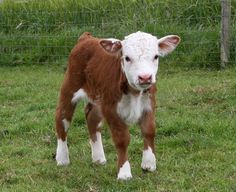
With variable beef cattle prices, livestock producers should capture all the weaning weight possible to calves. Producers can increase calf weaning weight by properly using growth-promoting implants, rotational grazing and creep feeding and by reducing calves' exposure to parasites.
Using an unapproved implant or implanting more than once with an approved product can cause reproductive problems in heifer calves you may want to keep as replacement cows so avoid these mistakes on heifers. Steers can increase weaning weights if they are implanted properly and at the correct time, so follow label directions.
Once calves are three to four months old the majority of their nutrients should come from something other than milk. Rotational grazing will keep pasture in front of the calf fresh and vegetative at all times. This will increase both forage digestibility and daily gain.
Creep feeding concentrates to supply extra nutrition to calves can also help increase weaning weights. But, in truth, the most efficient method is to creep feed for the last 45 days prior to weaning. This stimulates growth almost as much as continuous creep feeding, and provides a low conversion of feed to additional gain for calves on grass-legume pastures.
If the forage supply is plentiful, but not high quality in July and August, a limit-fed, high-protein creep feed will boost pasture intake and utilization resulting in increased calf performance. During drought when pastures are short but of good quality, a limit-fed, high-energy creep feed is preferred. Salt is a good method to control creep feed intake.
Pink eye and parasite loads will surely reduce calf weaning weights.
You can lose 30 to70 pounds of weaning weight for every calf that has pink eye.
Wet weather increases parasite exposure for calves. Parasite contamination decreases calf grazing and lowers dry matter intake and the nutrient use efficiency, resulting in lower weaning weight. Producers can control pinkeye and parasite loads through proper herd health management helping again boost calf weaning weights.
|

Coming Up Soon!
Drexel Spring Carnival
May 2 - 6, 2017
Make plans to come out and support Burke County 4-H by visiting the Cattlemen's Food Booth and having a hamburger or hotdog.
Burke County Extension Master Gardener's Annual Plant Sale
Saturday, May 13, 2017
More details coming soon.
Canning Jams & Jellies
May 20, 2017 starting at 9:00 am
Hands on canning class. Cost is $15. Class size is limited.
Burke County Extension Advisory Council Meeting
May 23, 2017
|
|
|
|
|
|